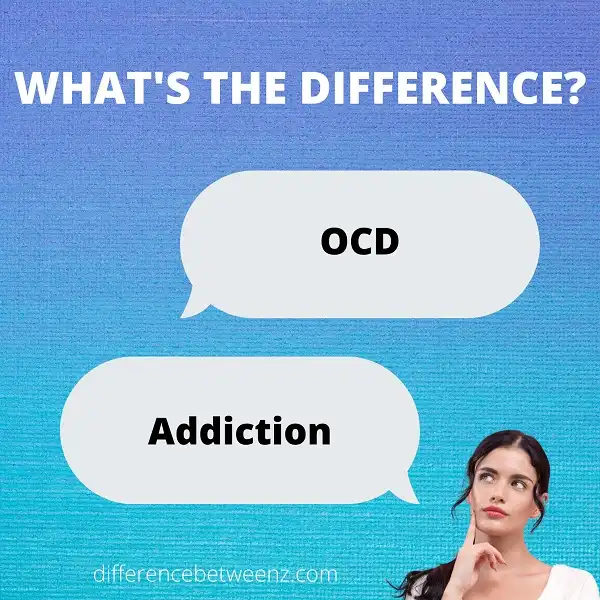It is easy to confuse OCD and addiction. Both disorders involve compulsive behaviors and can cause a great deal of distress. However, there are key differences between OCD and addiction. In this blog post, we will explore those differences, and discuss how to get help if you think you may be struggling with one of these disorders.
What is OCD?
OCD, or Obsessive-Compulsive Disorder, is a mental health disorder that is characterized by persistent and intrusive thoughts (obsessions) and/or repetitive behaviors (compulsions). OCD can cause significant distress and interference in daily functioning. People with OCD often realize that their thoughts and behaviors are irrational, but they are unable to control them. OCD is a relatively common disorder, affecting about 2% of the population. OCD is often treated with a combination of medication and therapy.
What is Addiction?
Addiction is a complex condition that can cause major problems in a person’s life. It is characterized by an intense and compulsive urge to use a substance, even when doing so causes harmful consequences. Addiction can lead to financial problems, job loss, health issues, and strained relationships. It can also have a devastating impact on mental health, causing anxiety, depression, and even suicidal thoughts. Despite the potentially serious consequences of addiction, many people struggle to overcome it on their own. Treatment for addiction often includes therapy and medication. With treatment, people with addiction can learn to manage their urges and live healthy and productive life.
Difference between OCD and Addiction
OCD and Addiction are two behavioral disorders that share some similarities, but there are also some key differences between the two. OCD, or Obsessive Compulsive Disorder, is characterized by intrusive thoughts that lead to repetitive behaviors in an attempt to ease anxiety. These behaviors can be both mental and physical, and they often become very time-consuming and disruptive to daily life. Addiction, on the other hand, is characterized by compulsive drug-seeking behavior despite negative consequences.
This can include both legal and illegal substances, as well as activities like gambling or sex. While OCD is driven by anxiety, addiction is driven by pleasure. Both disorders can be difficult to overcome, but treatment options are available. OCD typically responds well to therapy and medication, while addiction often requires a more holistic approach that includes detoxification, counseling, and support groups.
Conclusion
The difference between OCD and addiction is that people with OCD experience intrusive thoughts or impulses that are not pleasurable. People with addiction may also experience intrusive thoughts, but these thoughts are usually associated with the pleasure of using a substance or engaging in a behavior. Another key distinction is that people with OCD often know their thoughts are irrational, while people with addiction may believe their thoughts are rational. If you’re unsure whether you or someone you love has OCD or addiction, please seek professional help. Both conditions can be treated effectively if diagnosed early.


